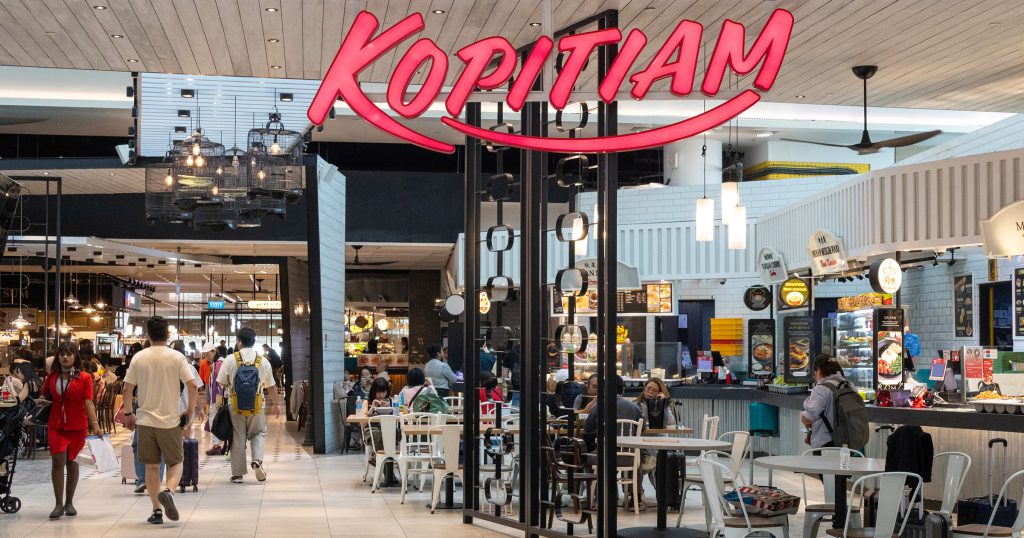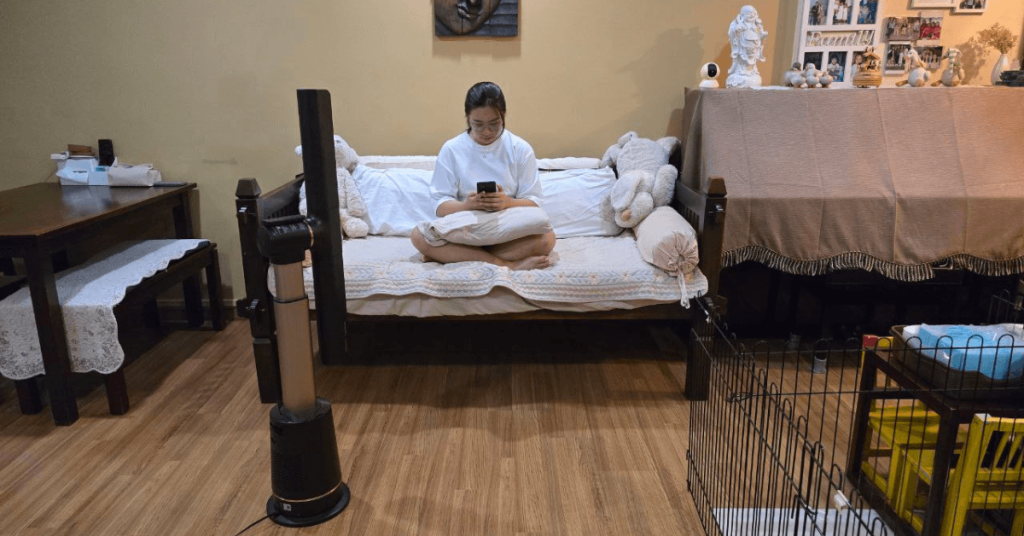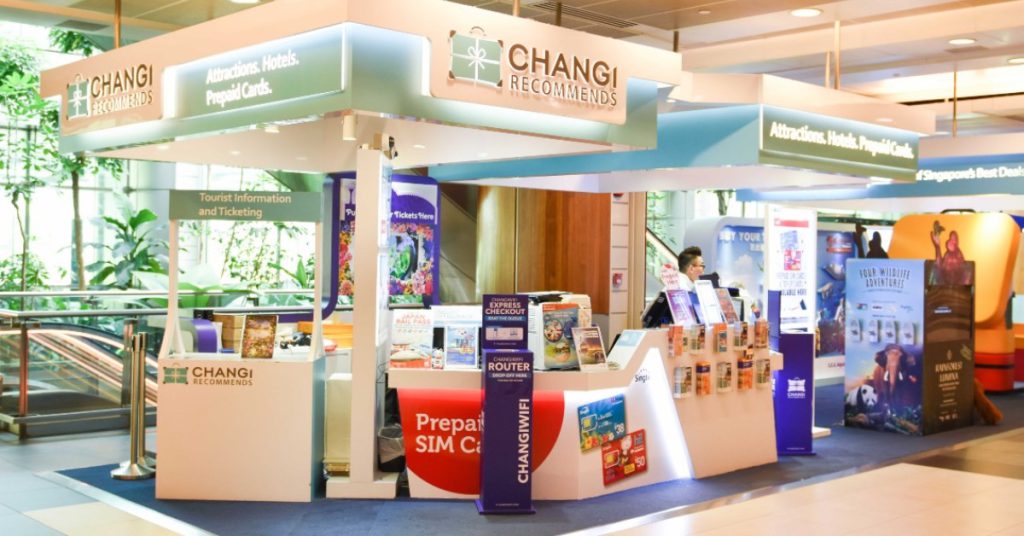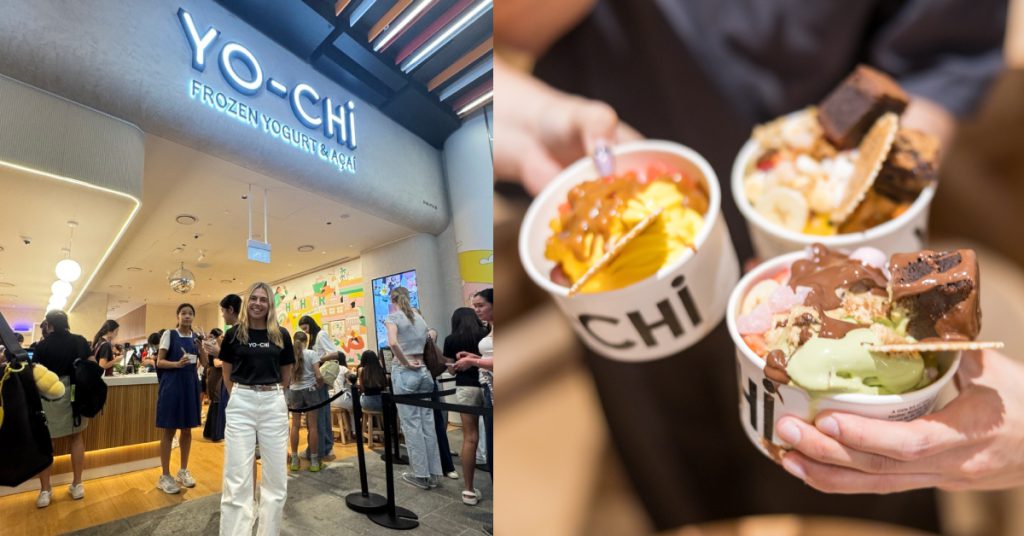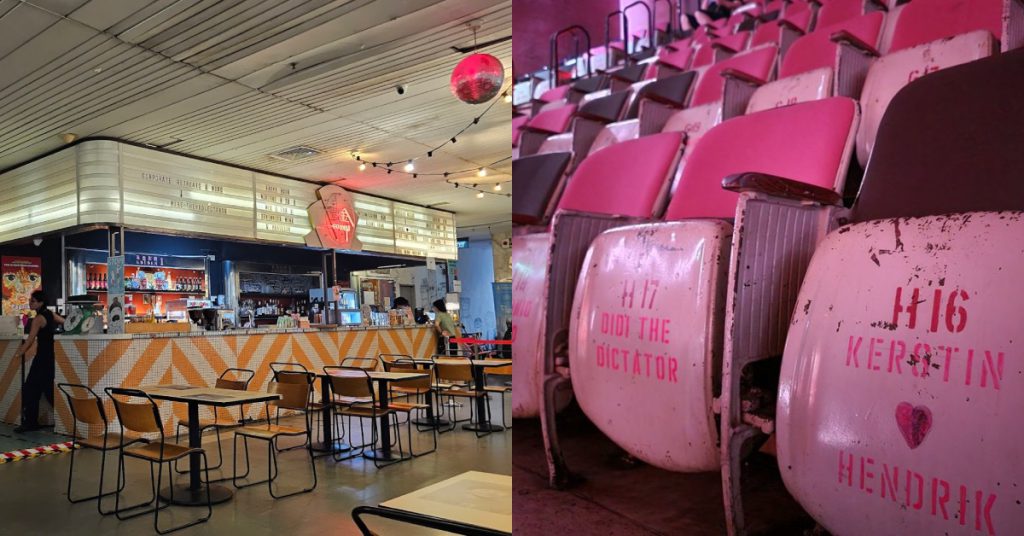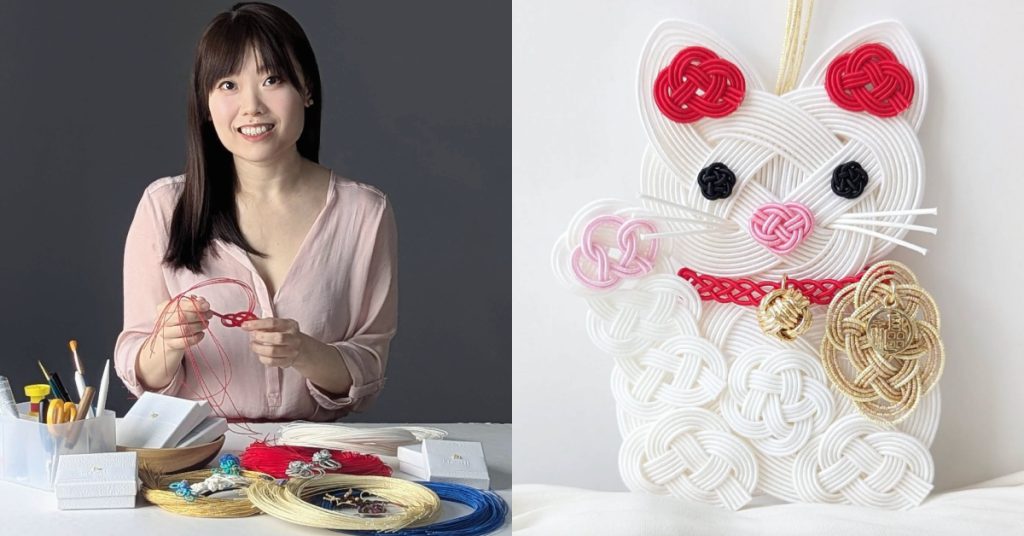Disclaimer: Unless otherwise stated, any opinions expressed below belong solely to the author. Survey data comes from YouGov’s “Most Persuasive Brands” report, August 2025.
Can Kopitiam beat McDonald’s? Is Uniqlo better than Shein? Is Apple stronger than Samsung? These are just some of the questions that researchers from YouGov tried to answer about the purchasing habits of Singaporeans and the brands that are best at drawing awareness before converting mere visitors to buyers.
Over a year, between May 1, 2024 and Apr 30, 2025, they tracked consumer sentiment and conversion rate of various industries, finally coming up with a ranking of the most persuasive brands in Singapore. Thus, persuasion is defined as a brand being able to (1) turn consumer awareness into consideration, and (2) turn consideration into purchase intent.
It’s also a useful benchmark for all entrepreneurs looking to see the conversion performance of large companies to observe and learn from their achievements.
Singapore’s most persuasive brands
We’ll look at the most interesting findings from seven industries (you can download the full report here):
- Airlines
- Video streaming
- Fast food
- Fashion
- Luxury fashion
- Payment brands
- Mobile devices
Airlines
Starting without any surprises—Singapore Airlines is not only the most widely known airline brand but also the most frequently considered one, and also by far the most successful at converting browsers to buyers, with 36.2% having the intent to purchase an SQ flight.
They’re followed by its low-cost subsidiary Scoot, for those on a tighter budget.
Singaporeans are very patriotic when it comes to selecting who they fly with, although it’s hardly a surprise given the generally superior quality of SIA’s offer compared to everybody else.
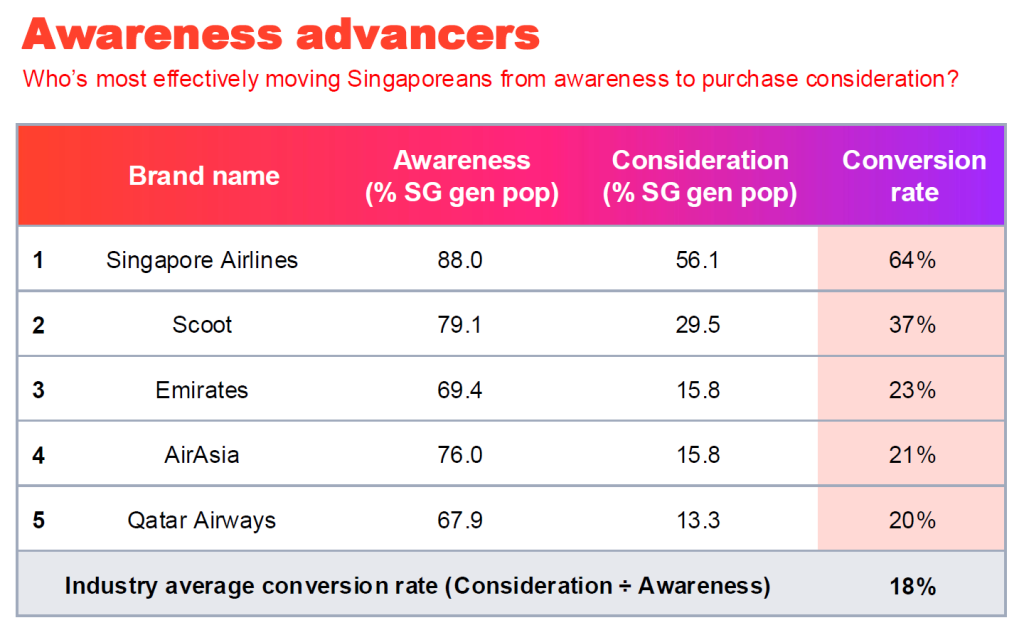
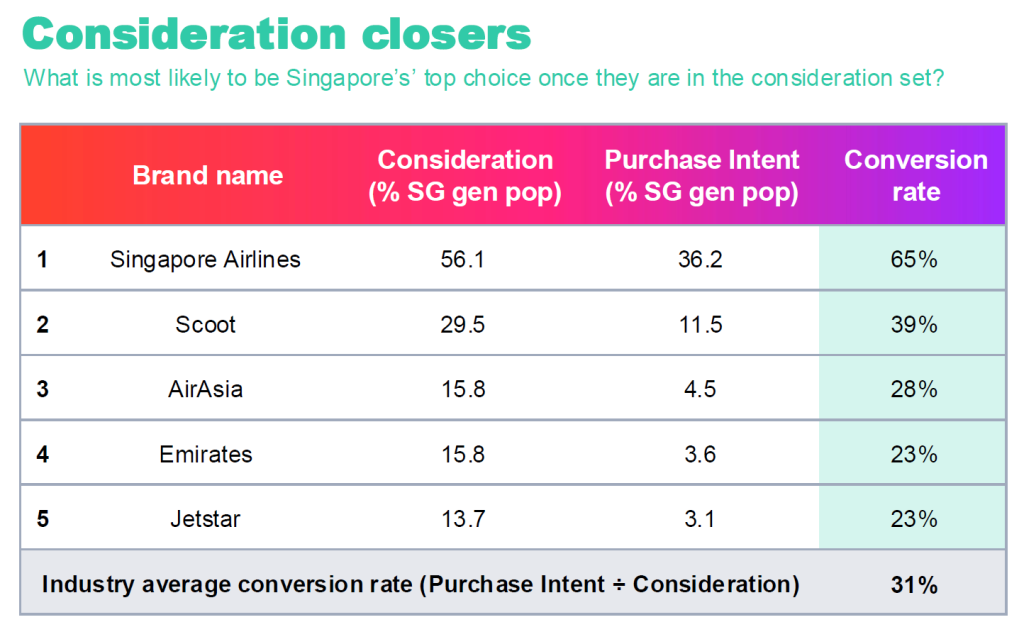
Video streaming
When it comes to online video entertainment, Netflix reigns well ahead of all competitors. While Disney+ may still compete for general awareness somewhat, it falls behind considerably when the final decisions are made. Even though it captures a slightly larger overall market share than Singtel or Starhub TV offerings, it does so from a much higher attention level.
And when money is counted, Netflix crushes rivals, turning one in every five Singaporeans into a willing buyer compared to just between 2 and 4% among the rest.
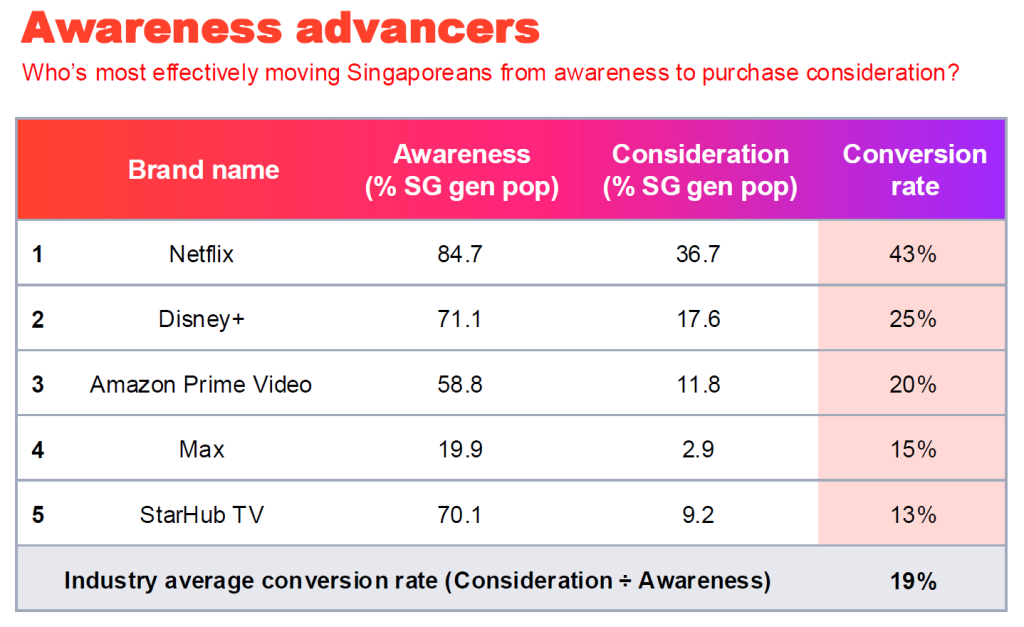
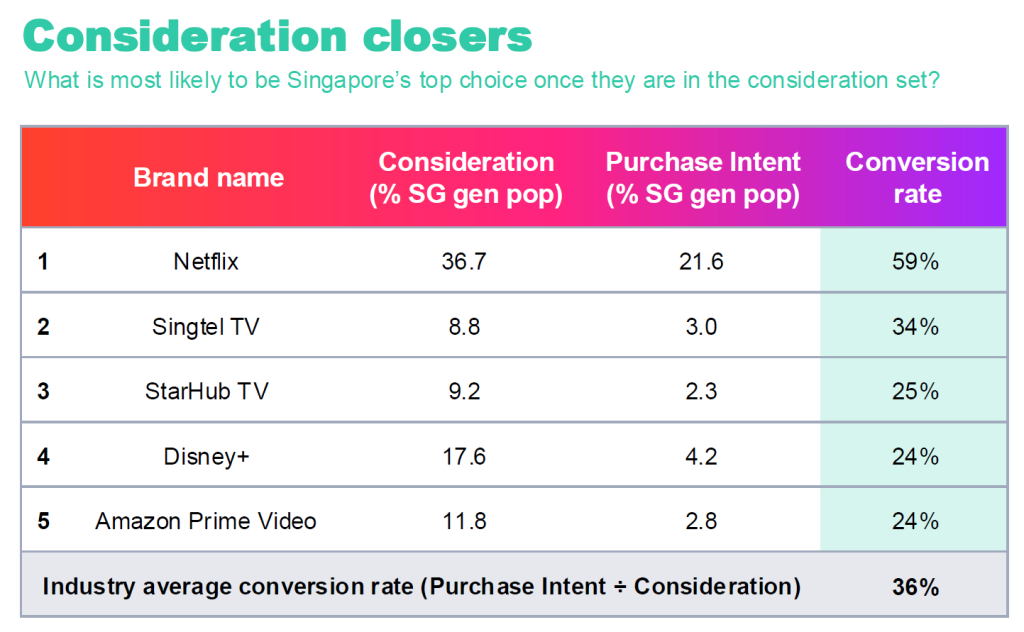
Fast food
Food! The national pastime of every Singaporean. So, where do you eat when you’re out for a quick bite? Well, as it’s a ranking of brands, and hawker centres aren’t one gigantic homogeneous entity, we have food court chain Kopitiam defending the honour of local staples.
Depending on how you look at it, its performance is either commendable or slightly disappointing. Kopitiam’s consideration percentage comes in second, just after McDonald’s, but surprisingly has a lower awareness among Singaporeans than the leading American chain, as well as two others—KFC and Burger King.
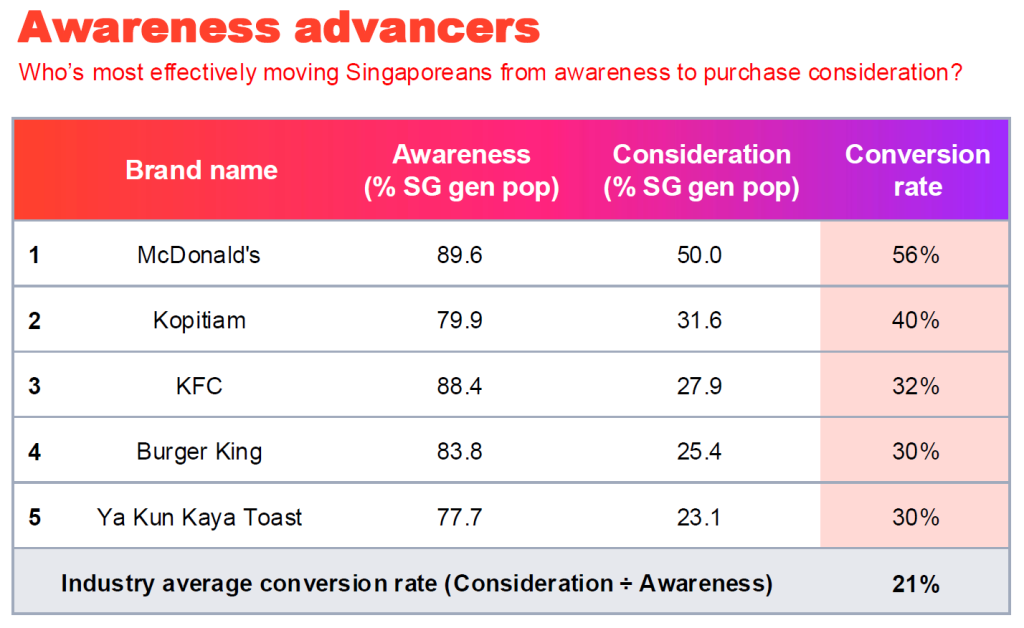
And while its conversion rate from consideration to purchase is a respectable 43%, Kopitiam ends up securing just half of what McD is capable of across the entire population. The Golden Arches are absolutely unbeatable in Singapore, but NTUC Foodfare enters the purchase intent conversation as an alternative food court chain.
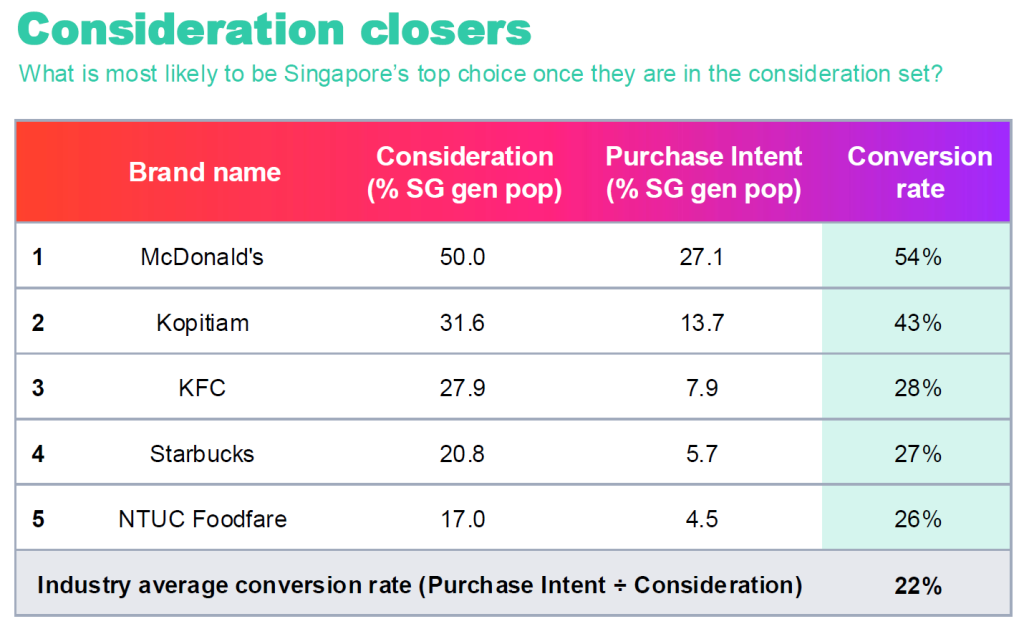
Fashion
Speaking of staples—Uniqlo’s Airism has contributed to keeping generations of Singaporeans cool, no less than the AC unit in every apartment. And despite its Japanese roots, it has now become almost a national casual fashion brand of Singapore.
Not only is it known by almost everyone (going head to head with Nike and Adidas), but it also steamrolls competitors in converting locals into buyers, with a third of all Singaporeans expressing the willingness to buy its wares, while all others are stuck in the single digits.
That said, when it comes to online shopping, Chinese Shein is making rapid gains and is one of the most effectively converting brands in the market (likely due to its very attractive prices, of course).
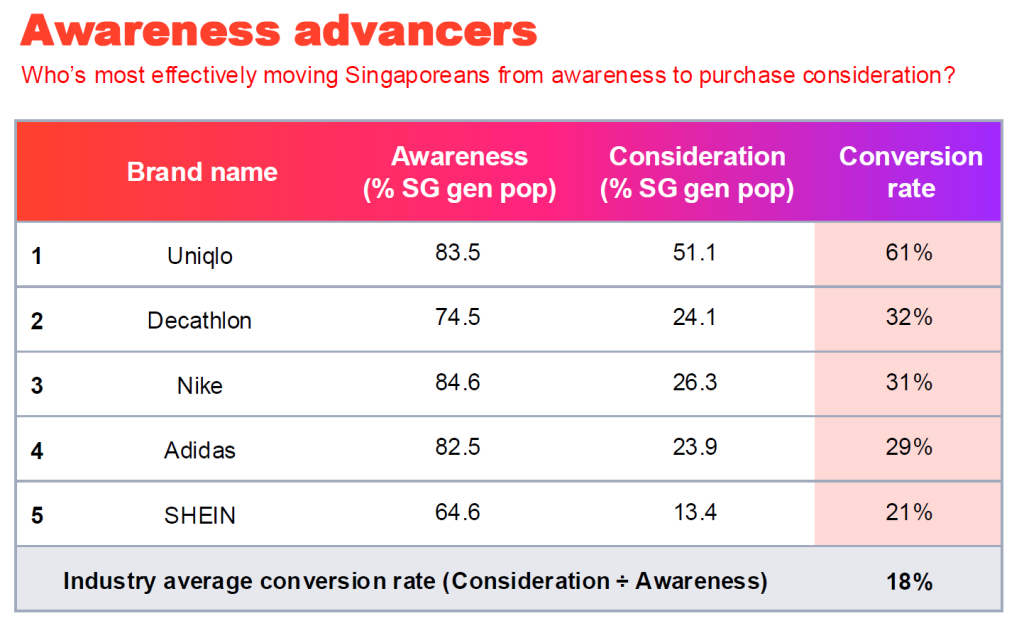
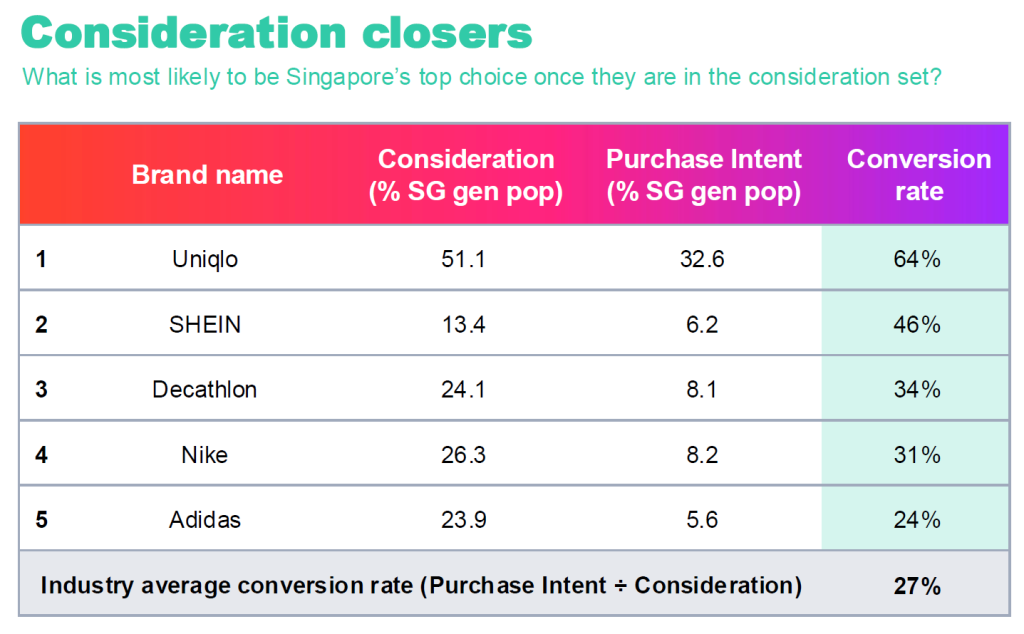
Luxury Fashion
For those with a bit more money, Singapore remains one of the top destinations, with shopping malls occupied by numerous upmarket boutiques. What’s interesting, however, is that it’s really hard to pick between them. While Louis Vuitton is slightly ahead of the pack, the difference isn’t as big as you would probably expect.
Unlike in other industries, none of the brands is doing that much better in terms of either attracting eyeballs or turning interested visitors into actual buyers.
Perhaps this has something to do with the less urgent nature of the purchase, where consumers take their time to make a final choice and don’t really exhibit a strong preference for any particular badge.
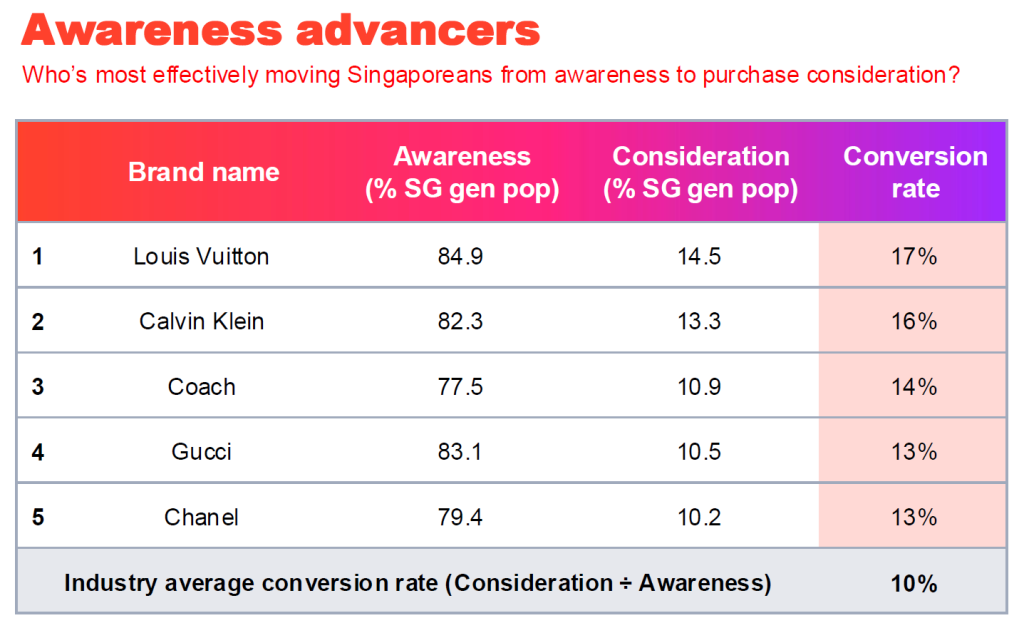
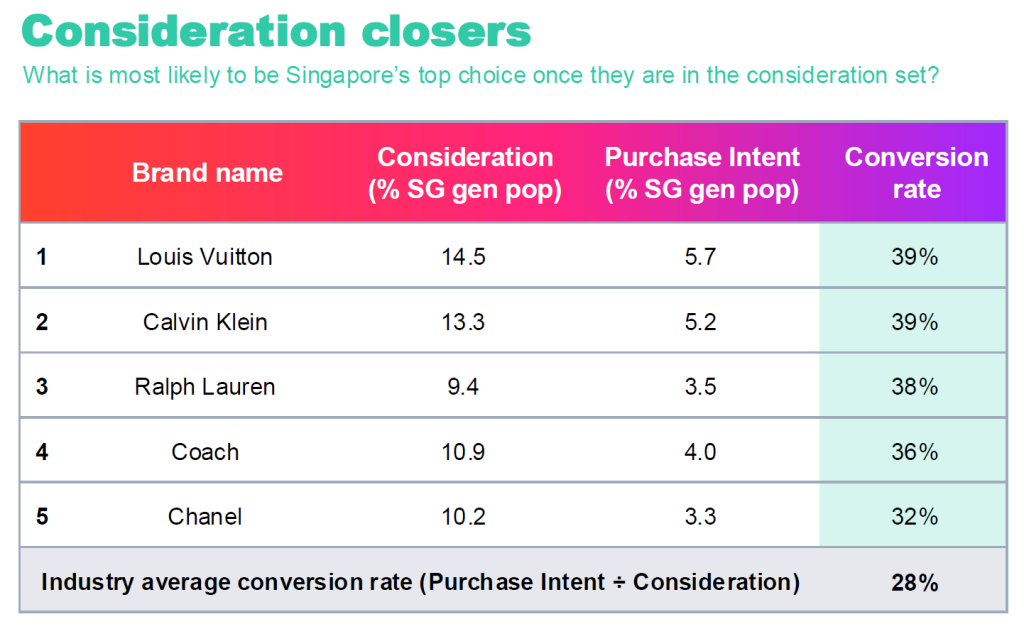
Payment brands
Here’s something to consider for those running a retail business themselves, be it traditional or online. It’s not a shocker that PayLah! is both widely known and trusted enough to draw people to consider a purchase, but when it actually comes to pulling the trigger, Apple Pay rises to the top out of nowhere.
This seems to have something to do with the well-established fact that Apple device users are more eager to spend money than Android users. And because they have bought into the entire ecosystem, they are more likely to trust Apple Pay.
So, while you may want to offer the convenience of PayLah or regular credit cards to your customers, you should also bear in mind who is most likely to actually spend the money with you—and that is still the person with an iPhone.
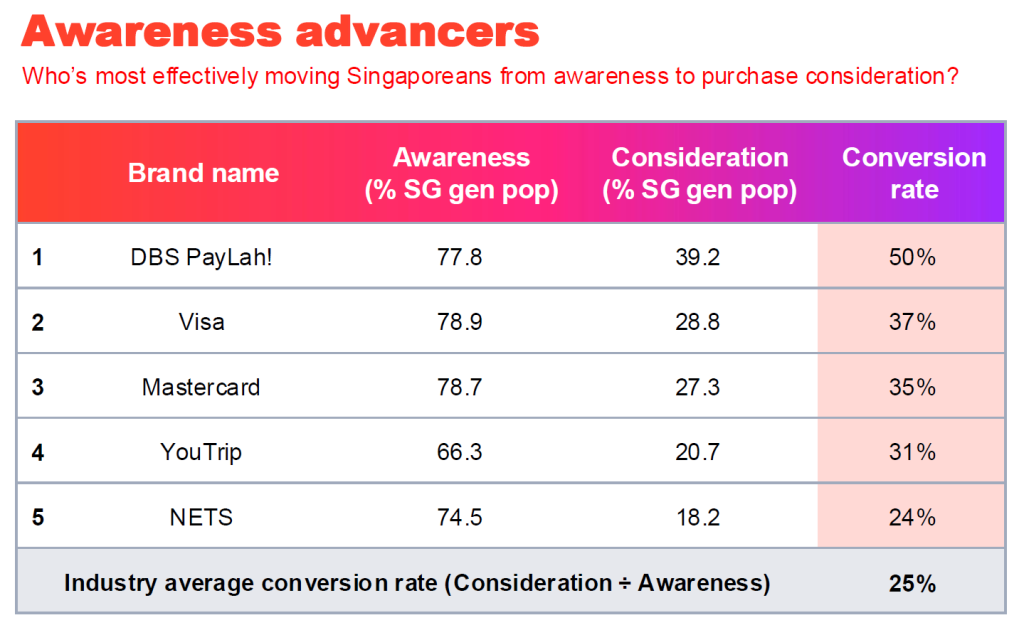
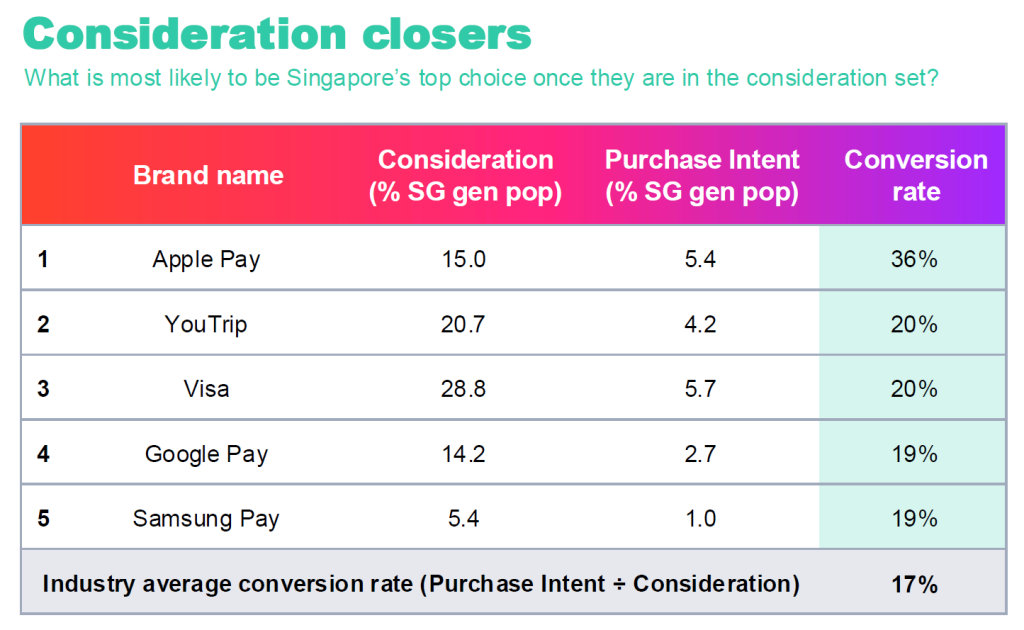
Mobile devices
In light of the above findings, it may come as a bit of a surprise that the most persuasive brand in Singapore is Korean brand Samsung.
The company has been struggling somewhat in recent years, trying to push back against much cheaper but still robust competition from China. Nonetheless, they take the crown in both awareness and purchase metrics.
Meanwhile, with many phones costing as much or sometimes more than Apple’s iPhone, you’d expect customers with deeper pockets to more readily pick the American product than just 11.9% of the surveyed.
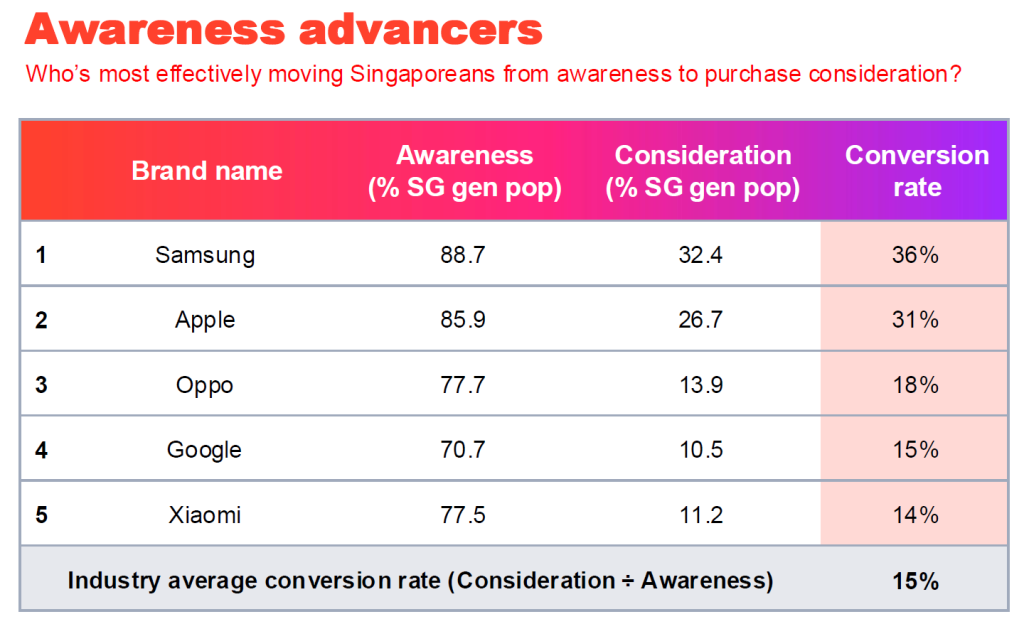
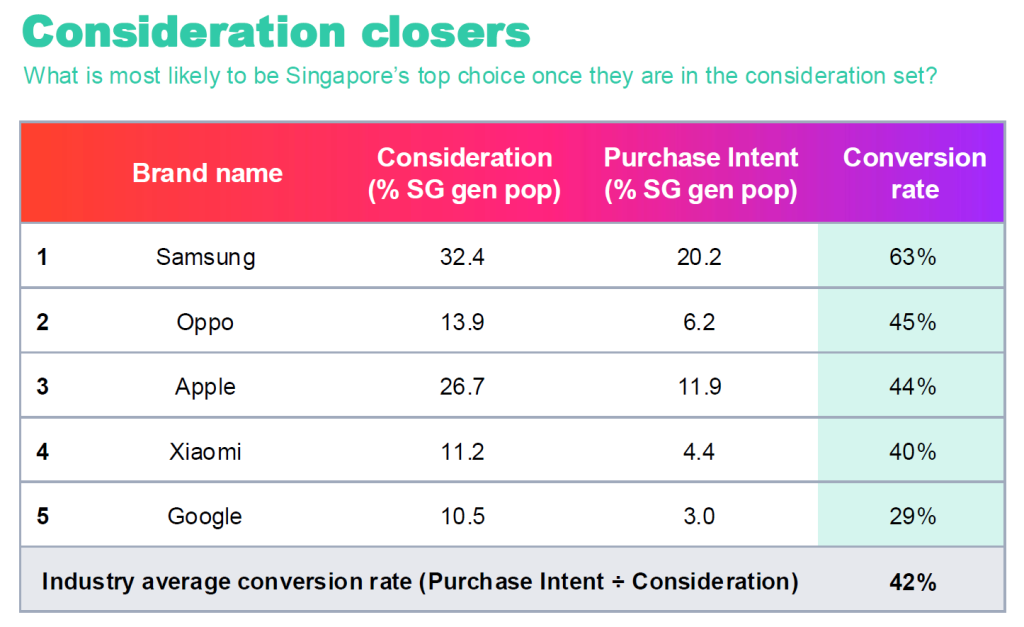
Singaporeans are loyal customers, and while less than half agreed that they prefer big brands, their purchasing decisions suggest that it might be a bit more than that—surprisingly, even when it comes to food.
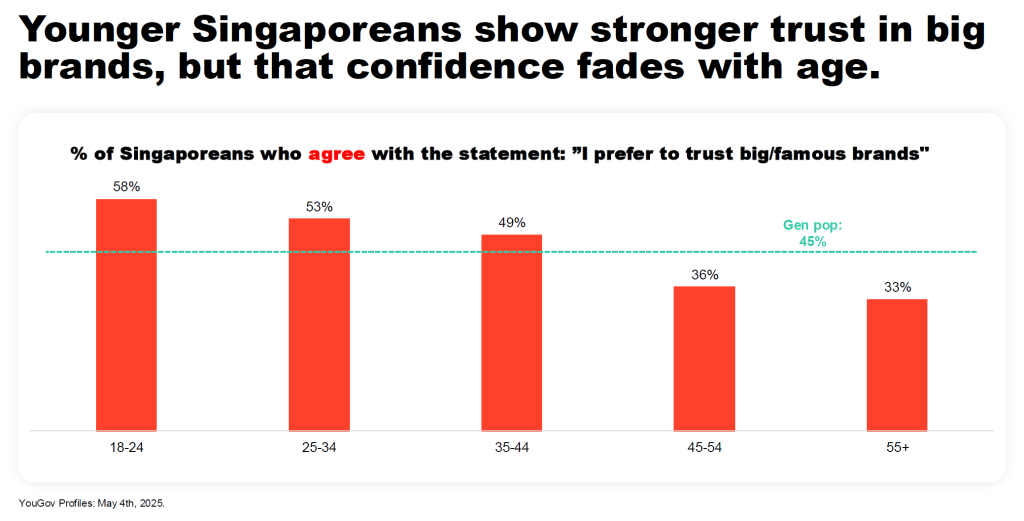
For daily needs, they stick to well-known names, in no small part because the city is so small and the offer is largely similar in different shopping malls; there isn’t that much space for surprises.
Being pragmatic as they are, they will dress in Uniqlo, buy at FairPrice, watch Netflix and fly Singapore Airlines. That said, when expressing a degree of individuality, they may give luxury brands a fair chance, as they might do with tech companies offering an endless selection of smartphones that all of us depend on every day — not only for practical use but also self-expression.
Those areas offer far greater opportunity for healthy competition.
Featured image: tang90246/ depositphotos


